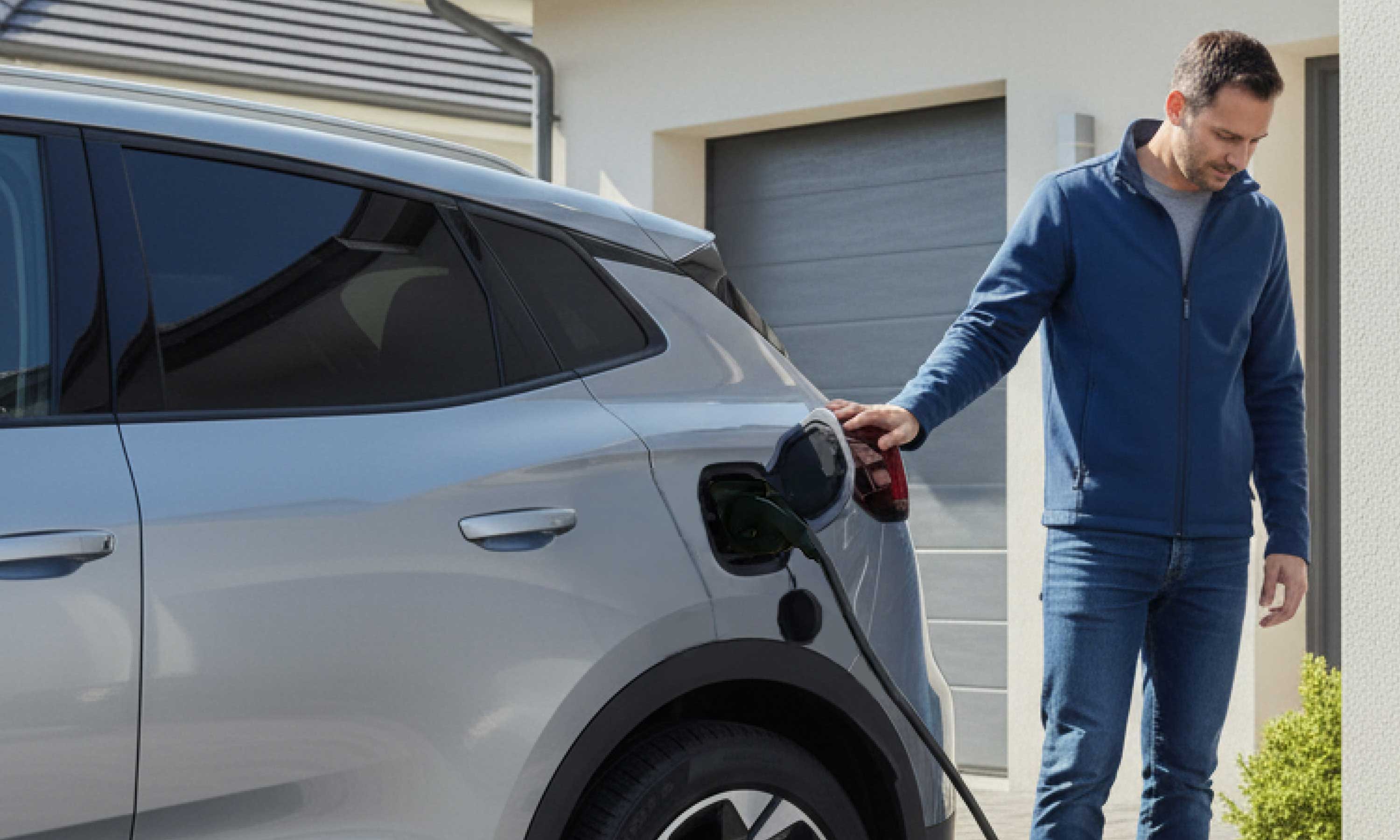Refueling your electric vehicle at home can save you a lot of money compared to traditional fuels. Electricity tends to be comparatively cheap, making the convenience of home charging all the more attractive, especially with rising fuel prices.
In this guide, we'll help you understand electricity prices, estimate your monthly costs, and give you tips for effectively managing and reducing your charging expenses.
How do you calculate the cost of charging an electric car at home?
The cost of charging your EV at home, whether at a traditional charging station or innovative solutions like induction charging, is as simple as it sounds: it depends on the amount of electricity you use (in kilowatt-hours, kWh) and your electricity rate in €/kWh. Simply multiply these two factors to get your cost 🧮:
Cost of charging = kWh consumed * Price/kWh
How much will you have to pay each month to charge your electric car? Your monthly driving distance and the efficiency of your electric vehicle—in terms of kWh consumed per km—are the main factors that influence your monthly charging costs!
Know your electricity scale to calculate what you will spend
Electricity prices vary greatly depending on your supplier and the type of tariff option you choose:
- Base rate 🕛: a single fixed rate per kWh at all hours (although the 24/7 rate makes it easier to budget, it can be more expensive).
- Peak/off-peak rates 🌙: The price you pay for electricity varies depending on the time of day, with off-peak hours being cheaper.
Choosing a rate that suits your charging habits, especially with a home charging station, could save you a lot of money, provided you plan your charging sessions strategically and make sure they take place during off-peak hours.
Impact on your electricity bill: what to expect and how to prepare your budget
Your total electricity consumption will increase significantly the first time you charge an electric car at home. It's a good idea to prepare for this change to avoid high and irregular bills. Many customers opt for annual billing with a fixed monthly payment and an adjustment at the end of the year.
To avoid any surprises during this adjustment, you should inform your electricity supplier of your increased consumption so they can adjust your billing plan accordingly. By establishing an adequate budget and making a firm commitment to your supplier, you will be able to seamlessly integrate electric vehicle charging into your household expenses 📅!
Increasing the power of your meter: prices and alternatives
Increased electricity consumption can come at a cost, however, as you'll need to upgrade your electricity meter to charge an electric car at home. However, these costs can be eliminated through smart energy management. A smart charging station with an energy management system will help you stay within existing power limits when charging your vehicle. This way, you can avoid costly upgrades and keep your expenses reasonable.




Leave a comment